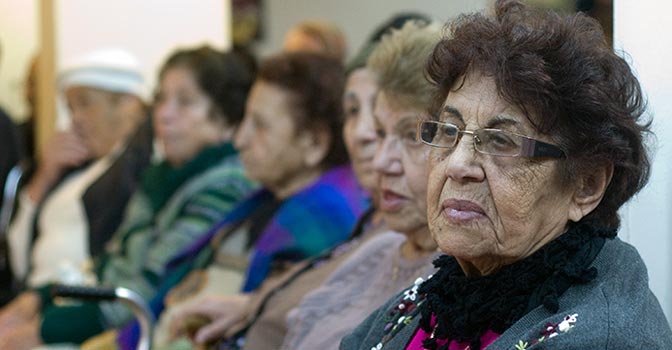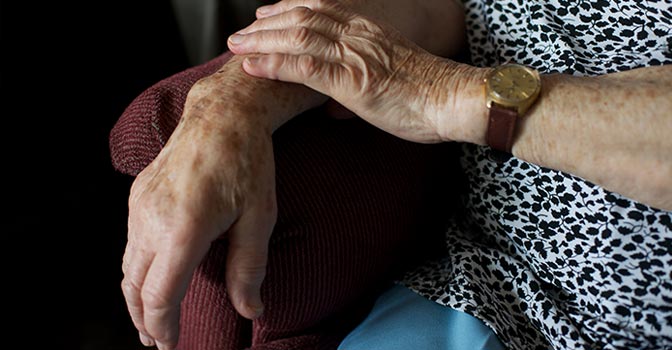We at Remember the Women Institute have been seeking for years to place the issue of sexual violence against Jewish women (and men) during the Holocaust in the narrative of Holocaust history. We believe that we have made some inroads, especially with our recent symposium in cooperation with USC Shoah Foundation.
Category: Issue 3, Winter 2013
Goodnight, Irene… Welcome Home! Transforming Relational Trauma in a Residential Setting By George Halasz, Magalí Kaplan, Rod Myer “And so I learnt that the poet is a pulse in the rhythmic flow of generations.” – Octavio Paz, In Search of the Present (1990 Nobel Lecture, p. 22, San Diego Harvest) Introduction It is often said…
End-of-Life Issues for Holocaust Survivors A presentation given in October 2008 at an international conference in Frankfurt for professionals working with Holocaust survivors. By Judith Hassan, OBE Those who attended the conference in Vienna in 2007 know how strongly I feel about helping survivors to maximise the time they have left in their lives and…
In Their Own Words: Survivor Wartime and Late Life Coping Styles By Nancy Isserman, Bea Hollander-Goldfein and S. Nechama Horwitz The coping literature is quite extensive with hundreds of published articles examining coping strategies. More specifically, the field of Holocaust studies has also examined coping. Most studies have looked at coping using quantitative instruments. Some combine…
Aging Child Survivors
Aging of Child Holocaust Survivors By Yoram Barak, MD, MHA Introduction Numerous studies focus on the influence of Holocaust experiences on child survivors more than 60 years after the Holocaust. Our own treatment and research group investigated issues as diverse as development of dementia, suicide and psychiatric services used by survivors (Ohanna, Golander, & Barak, 2011;…
The Resiliency of the Survivor: Views of a Child Holocaust Survivor/Psychiatrist A presentation given at the Pike Conference on “The Holocaust and Its Legacy: Resiliency, Fragility and Restitution of Survivors,” Sunday October 23, 2011 at Hillel House, Boston University. By Dr. Robert Krell May 5, 1945 is indelibly etched into my memory. I was not…
Assessing Trauma, Abuse and Loss via Guided Imagery and Music by Amy Clements-Cortés, Ph.D., MusM, MTA, Mt-BC, FAMI Abstract Holocaust survivors often face many psychological and emotional issues such as fear, and intrusive thoughts and images as a result of the traumatic experiences they endured. Guided Imagery and Music is an evidence-based form of psychotherapy…



